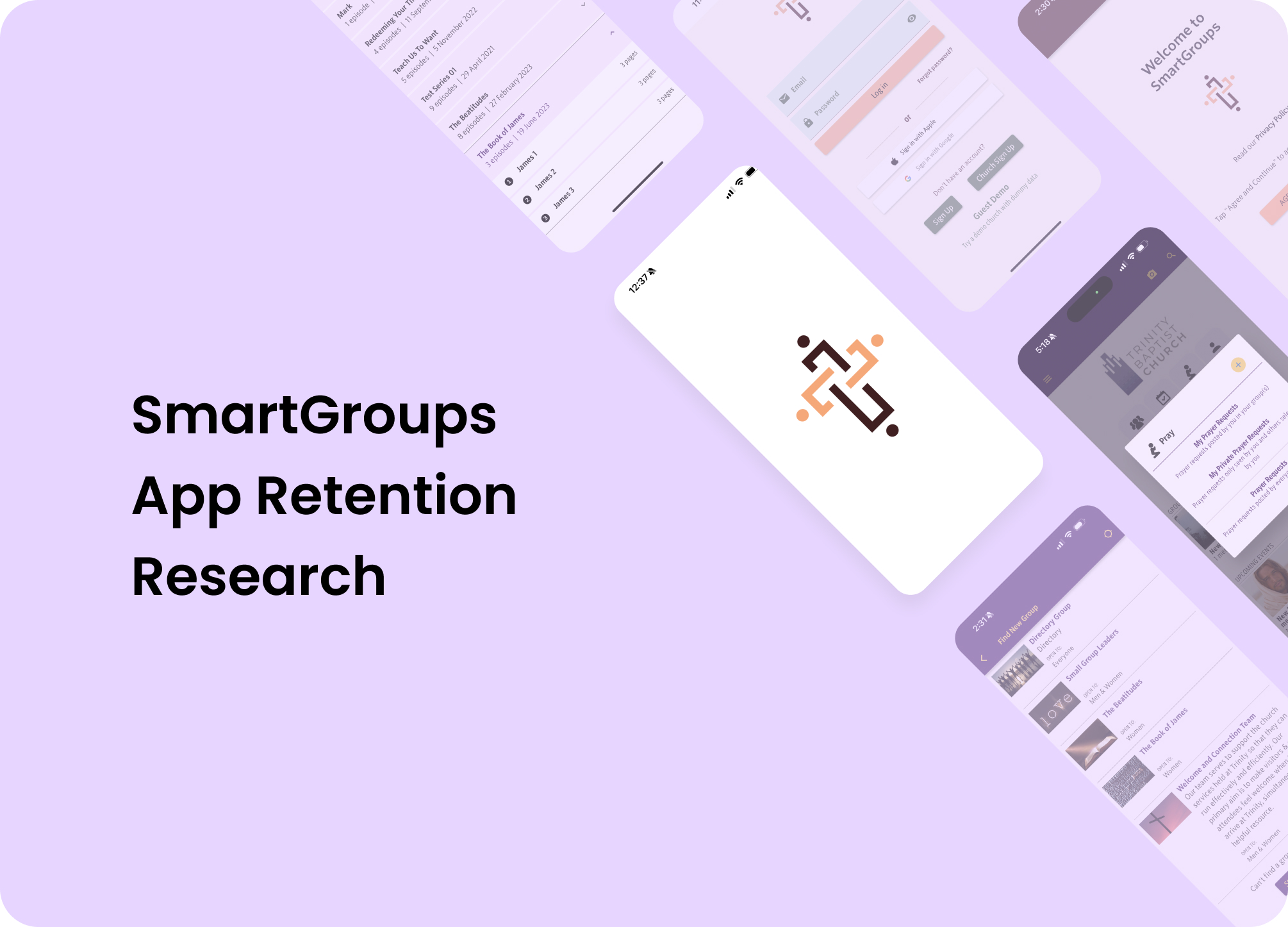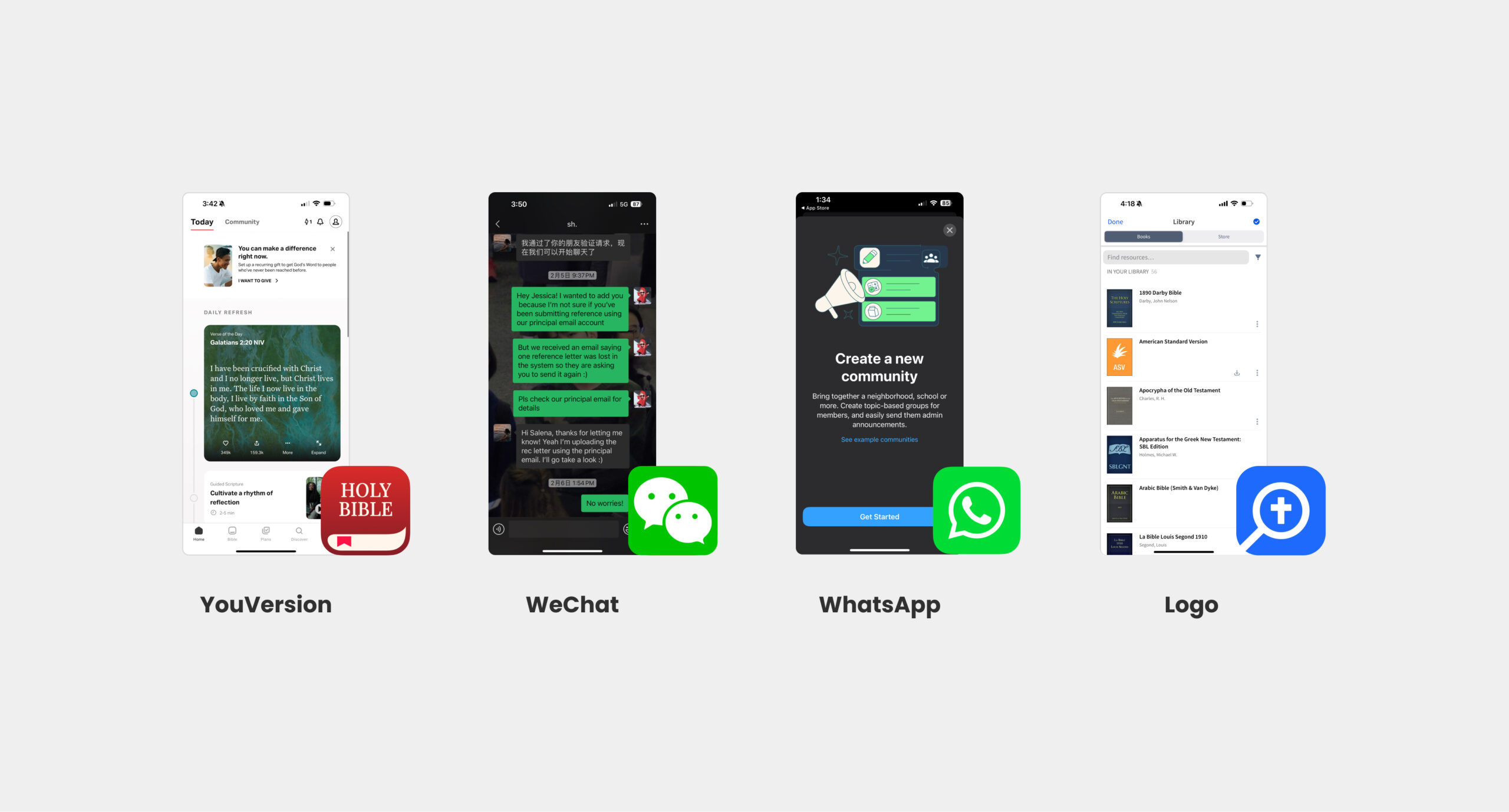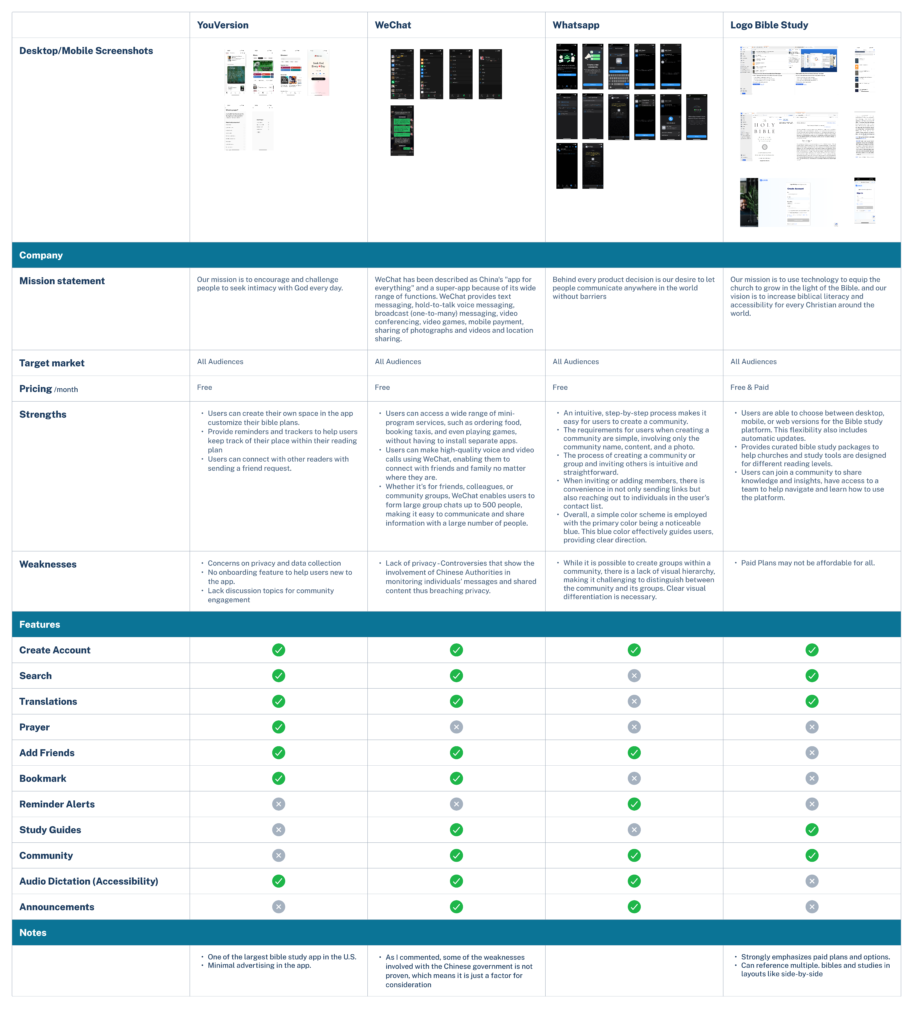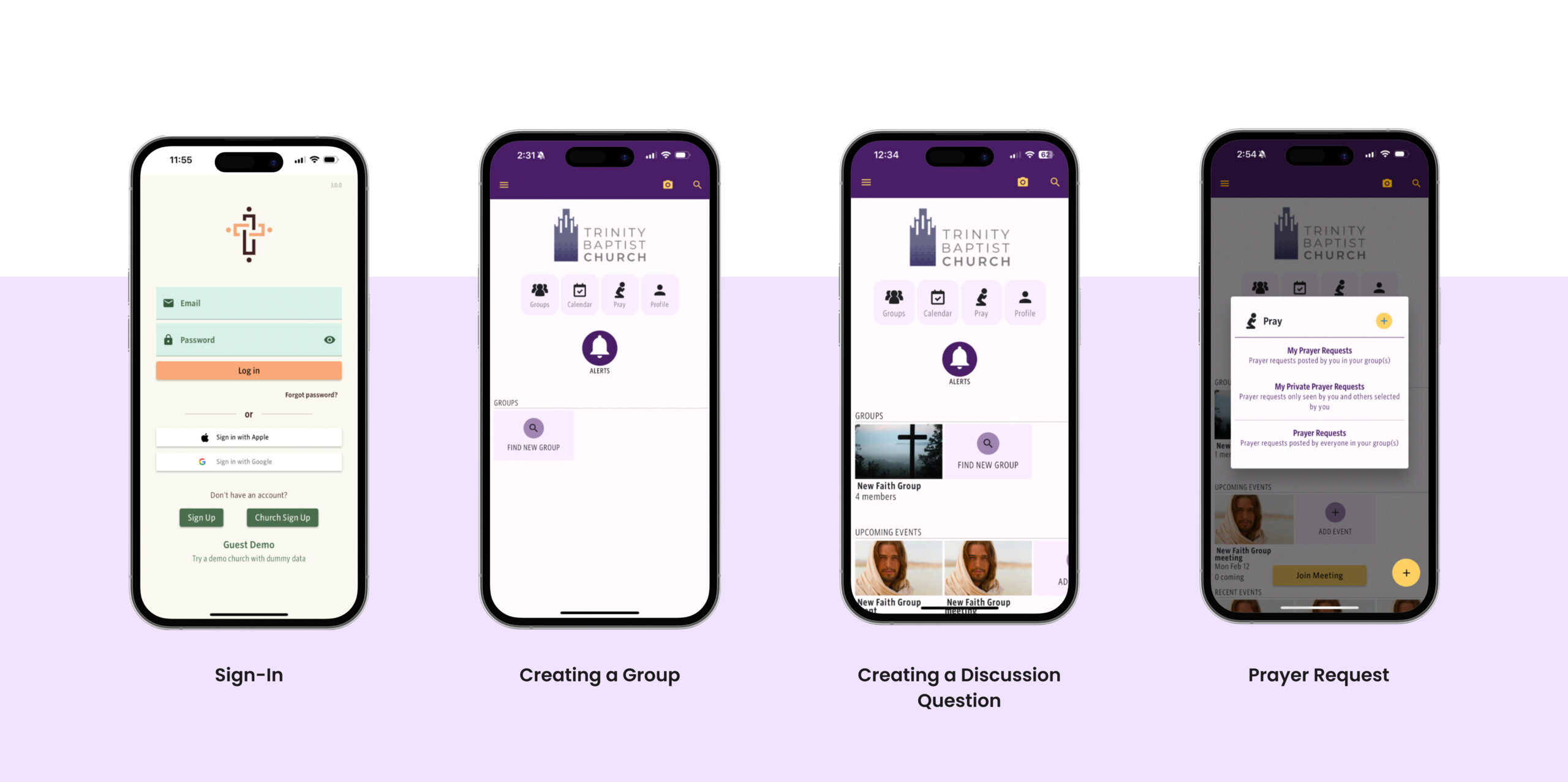
Scope
Timeline
Tools
Background
Overview
The SmartGroups app is an all-in-one bible study platform to help leaders and members connect and lead bible study sessions in person, remote, or hybrid settings. With a team of four UX Researchers, we aim to look into intricacies of user behavior and pain points that could impact the mobile application’s retentions rate.
Goals & Questions
As a team, we spoke with SmartGroups founder, and determined our research goals and questions. We want to find out:
What are the users using the app for? Does it align with the app’s original intention?
During the onboarding process, do church leaders and group leaders understand the purpose of the app and able to create an account? If not, what challenges do they face?
Do the features align with the users needs to use the app? How do the user engage with the features?
Understand
the factors that impact user retention rates when using the app.
Determine
priority features important for users when using the app.
Evaluate
the app and features using Nielsen Norman’s Usability Heuristics
Format
We divided the project into three phases:
Phase One: Understand
Stakeholder Calls and observed recorded current user sessions.
Phase Two: Discover
Conducted user interviews and moderated tests with current and new users.
Competitor Analysis
UX Heuristics with Nielsen Norman Ten Usability Heuristics
Phase Three: Analysis
Reviewed findings and insights and presented to app stakeholder.
Phase Two: Discover (User Interview Format)
Current Users
Moderated user interviews scheduled with Google Meet.
Rationale: We want to understand current users experience using the app, a user interview will provide rich qualitative data.
New Users
Moderated user interviews and usability test scheduled with Google Meet.
Rationale: We want to understand from new users goals to attend or lead bible study group, and evaluate their experience in a usability testing with the app.
Sample Size
Current Users
Interview and Usability Test
- n = 2
- Female
- New York, USA
New Users
Interview and Usability Test
- n = 5
- Mixed Gender
- New York, USA and New Jersey, USA
Recruitment Criteria: All users have experience attending a bible study session and have experience using a mobile application.
Insights
Understand
Administrative tasks are time consuming
For users, operational tasks to create and lead small groups are time consuming. These tasks vary, but could take group leaders days to plan ahead in order to lead study groups sessions. Overtime these tasks can overwhelm and deter users to lead groups. Having features to reduce these daunting tasks are favorable to users.
Discover
We want to uncover both current and new user insights in qualitative research methods of interview and moderated user task testing. In addition, we looked into the market and conducted competitor analysis along with a usability evaluation using Nielsen Norman Usability Heuristics.
How do competitors perform?
Through interviewing users and market research, we conducted analysis on four competitors within the industry to identify strengths and weaknesses.


We dived in to each application’s mission and features to find out what differentiated them with one another and used in bible study groups.
Social apps like WeChat and WhatsApp are already popular and easy onboarding process for users. Teams were able to add/invite new members to their group (up to 500 users) and send out announcements and discussions.
Bible Focused apps like YouVersion and Logo focuses on bible reading and study guides. They incorporate many versions and languages for readers. Logo also includes paid plans for businesses and personal studies, which could deter users.
Current Users
User have a hard time recalling the sign up process.
Current users who have an account don’t recall the sign up process. They had complications when they signed up and reached out to the application founder for assistance.
Users like the tracking attendance and group session notes.
Users who lead study group sessions like the ability to track members attendance and view study session notes. Overtime, this helps leaders keep track of their group and reach out to ensure all group members receive scheduled meetings along with any notes that would help them in their faith study.
Users needs a separate share screen to communicate in a study group.
The app has its own video/audio share functions, but were too small for users during study sessions. Users would use Google Meet to meet and communicate with one another. This capability was not a priority for users.
Users would like the option to contact others.
Member engagement are current users’ favorite part to using the app. Each user has a created account and profile when they sign in. Users in the same group can view each other profiles, but they would like the ability to connect with them in the app, rather than wait until they meet. This feature inspires them to reach out and better engage with their group members.
New Users
Users can foresee it as a organizational tool for remote studies.
Users who completed tasks like creating and scheduling study groups can imagine the application to be a great organizer for remote bible study sessions. They like the ability to create their own group and invite members along with using pre-loaded or customizable bible study materials for group studies.
Users find it difficult to create new study group questions.
When asked to add-on their own study group questions, users were unsure where to start. They found it difficult to include those questions onto their schedule study group, and mentioned the options they expect to see were not seen.
Users spend long time on lengthy forms.
Users who complete create a study group task spend a large amount of time on the group application. They spend time scrolling up and down the page and mention the application is lengthy with multiple open-ended questions. Users also pointed out improvement needed on wordings with questions that could be discouraging for applicants.
Users prioritize private prayer requests.
Users who completed the create prayer request task would search for the “Make Prayer Private” toggle before filling in their prayer messages. Some users who couldn’t find it spoke up about making sure these message to be private before submitting it due to privacy concerns. Since this is user’s prioritized feature, ensuring the toggle’s searchability and findability is essential.

UX Usability Analysis
Through interviewing users and market research, we conducted analysis on four competitors within the industry to identify strengths and weaknesses.

Summary
Conclusion
Through this research, we were able to uncover more information from current and new user experiences using the SmartGroups mobile application within their bible study group. We re-created user tasks from the app to mimic the experiences and completed interviews to further understand bible study users’ goals and motivations. From our usability heuristics, we were able to identify opportunities for improvements within industry standards to propose solutions to fit with user and stakeholder goals.
Limitations
- More information from current users is needed can ensure our data are more comprehensive and build continued confidence.
- Users recruited from different church groups can capture needs and pain-points from diverse bible study needs.
- Target groups like church leaders can give informed data on their church needs with a study app. This research was unable to capture data from this target group.